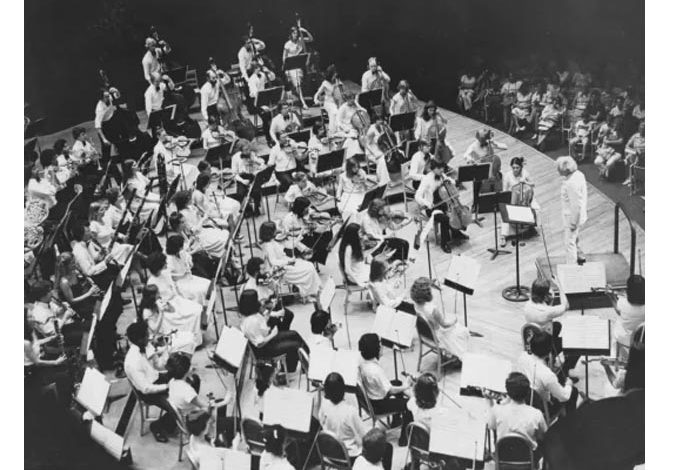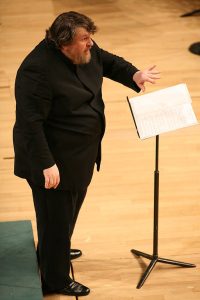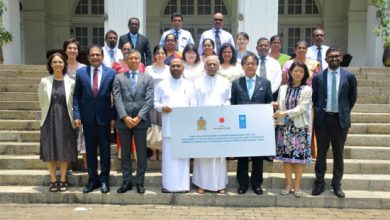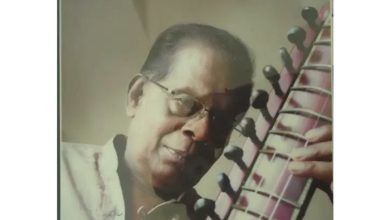“Global Music Shifts of 1968 and Sri Lanka’s Moment”


From “Tales of One City.”
Shows him in action, leading an orchestra.
1968 is often remembered as a year of global political unrest, cultural experimentation, and artistic upheaval. But for music lovers — including audiences in Sri Lanka, where Western classical traditions were already developing through school orchestras, community ensembles, and the emerging Symphony Orchestra of Sri Lanka — it was a turning point in the way classical music was created, understood, and shared.
The year redefined who could shape the future of the concert stage, how orchestras connected with the world, and what cultural identity meant in music. Even in Colombo, these changes were felt through radio broadcasts, imported LPs, and the growing visibility of influential South Asian musicians abroad.
Bernstein Steps Down: An Era Ends, a Global Stage Opens
When Leonard Bernstein announced his departure from the New York Philharmonic, the classical world took notice. Bernstein was far more than a conductor: he was a composer, pianist, educator, communicator, and global cultural figure.
Speculation about his successor traveled quickly. Herbert von Karajan, Pierre Boulez, and other European titans were widely discussed. But the appointment of Zubin Mehta, a young Indian conductor rising quickly on the international scene, changed the narrative.
For Sri Lankan listeners and musicians, Mehta’s ascent was a powerful reminder that South Asians could stand shoulder to shoulder with the world’s most acclaimed artists.
A Fifteen-Year-Old Prodigy Commands London
While Bernstein was stepping back, a new talent was stepping forward. Fifteen-year-old Oliver Knussen premiered his Symphony No. 1 at the Royal Festival Hall — a performance personally encouraged by Bernstein.
It was a bold moment. Knussen’s achievement demonstrated that young composers were not merely learners but active contributors to contemporary music. His success inspired emerging musicians across the world, including in Sri Lanka, where youth orchestras and school competitions were beginning to find their place in the cultural landscape.
Across Paris, Beijing, and Beyond: New Sounds, New Directions
European orchestras also entered a phase of transformation. In Paris, the Orchestre de Paris celebrated its first anniversary with international tours and quickly built a global reputation. Its success reflected a growing trend: orchestras were becoming diplomatic and cultural ambassadors for their countries.
Farther east, China underwent a quiet but meaningful musical shift when Western instruments, including the grand piano, appeared in Peking Opera productions for the first time. This development suggested a slow opening toward global musical influences, even in tightly controlled cultural environments.
Meanwhile, experimental and electronic music drew public curiosity. The BBC Proms invited audiences to vote on contemporary works, including one by John Tavener. Opinions varied, but it was clear that listeners were being invited to participate in shaping the future of classical music.
Opera Reinvents Its Relationship with the Public
Opera houses were also transforming. London’s Sadler’s Wells moved into the Coliseum Theatre, supporting two full opera companies and taking major productions on international tours. Staging classics like Don Giovanni in English made opera more accessible — a philosophy that aligns with how Sri Lankan ensembles often use English to widen audience reach.
Covent Garden, while retaining its traditional identity, quietly embraced modern works, such as Hans Werner Henze’s The Bassarids, which premiered on the BBC Third Programme. It showed that innovation and tradition could coexist without conflict.
Concert Life Shifts — And Sri Lanka Listens
Concert programming across the globe became more adventurous. Orchestras combined classical masterpieces with contemporary compositions to attract broader audiences. Festivals grew into creative laboratories, pairing established maestros with emerging voices.
Although Sri Lanka’s classical music scene was smaller, similar ideas found expression through the Symphony Orchestra of Sri Lanka, school music programs, Anglican choral traditions, and radio broadcasts that carried performances by Bernstein, Karajan, and Boulez into local homes.
The world was changing musically, and Sri Lanka was very much part of that wider listening community.
Why 1968 Still Matters Today
The events of 1968 set a new direction for classical music:
- Young musicians were given space to lead.
- Tradition opened its doors to innovation.
- Music expanded beyond borders and became more globally connected.
This was not solely a Western transformation. It was a moment when classical music redefined itself as a global conversation.
For Sri Lanka — with its growing orchestras, choirs, conservatories, and independent musicians — the spirit of 1968 remains important. The year demonstrated that music develops most strongly when it welcomes change while respecting and preserving its foundations.






